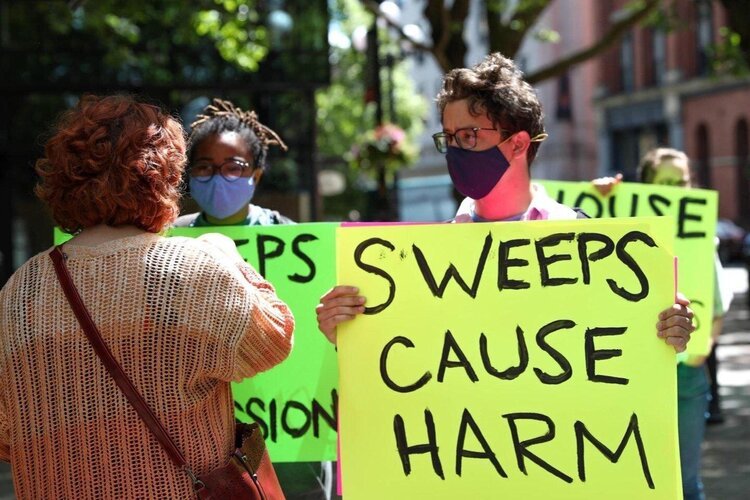Published on October 29, 2024

Reported by Ph.D. Candidate in Information Science, University of Washington
Homelessness has surged across the United States in recent years, rising 19% from 2016 though 2023. The main cause is a severe shortage of affordable housing. Rising homelessness has renewed debates about use of public space and how encampments affect public safety.
The U.S. Supreme Court recently weighed in on these debates with its 2024 decision in Grants Pass v. Johnson. The court’s ruling grants cities the authority to prohibit individuals from sleeping and camping in public spaces, effectively condoning the use of fines and bans to address rising rates of homelessness.
East Atlanta Village, a historically Black neighborhood in Atlanta with about 3,000 residents, is trying something different. In the fall of 2023, with support from the Atlanta City Council, the mayor’s office and Intown Cares, a local nonprofit that works to alleviate homelessness and hunger, the neighborhood hired a full-time social worker to support people experiencing homelessness.
Michael Nolan, an Intown Cares social worker, is trained in an approach that emphasizes individual autonomy and dignity, recognizes that being homeless is a traumatic experience, and prioritizes access to housing. His role includes helping individuals get the documentation they need to move off the streets, such as copies of their birth certificates and Social Security cards. He also has a dedicated phone line that community members can use to alert him about dangerous situations that involve homeless people.
I am a researcher at the University of Washington studying programs and technologies that help urban neighborhoods flourish. I’m also a resident of East Atlanta Village and have helped the neighborhood organize and evaluate this experiment.
For the past year, my colleagues and I have collected data about the neighborhood social work program to understand how well it can support both people without housing and the broader community. Our preliminary findings suggest that neighborhood social work is a promising way to address challenges common in many neighborhoods with homelessness.
I believe this approach has the potential to provide long-term solutions to homelessness and improve the health and safety for the entire neighborhood. I also see it as a sharp contrast with the punitive approach condoned by the Supreme Court.
Continue reading here.
East Atlanta Village, a historically Black neighborhood in Atlanta with about 3,000 residents, has hired a full-time social worker to support people experiencing homelessness.